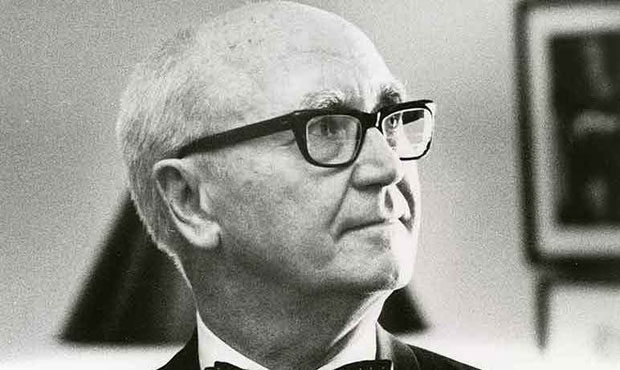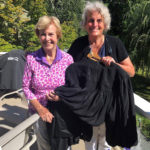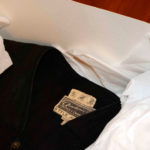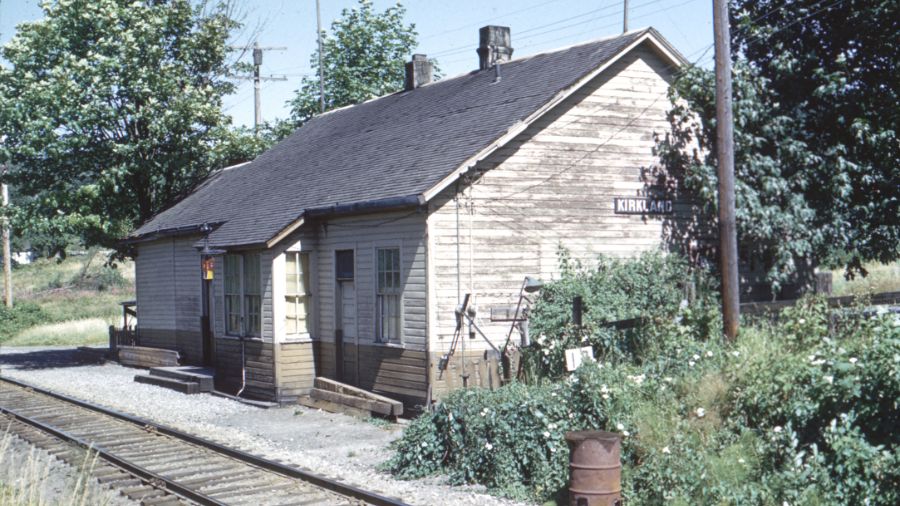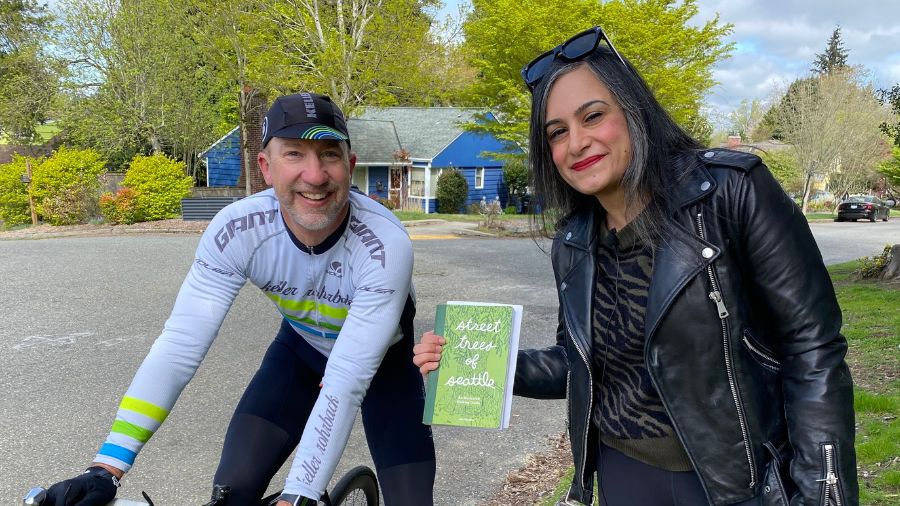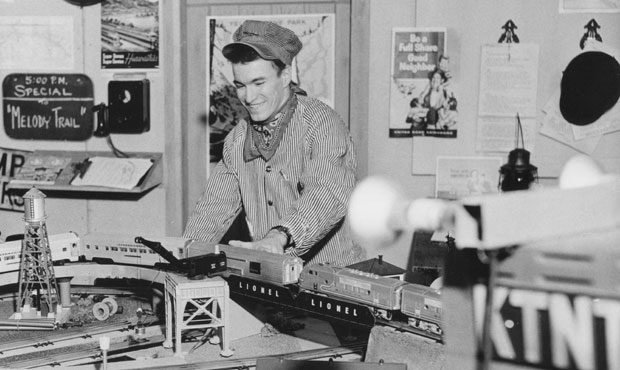Remembering the Washington judge famous for his ‘monumental’ 1974 decision
Jun 23, 2021, 11:20 AM | Updated: Jun 25, 2021, 11:24 am
The Boldt Decision was a landmark legal ruling handed down in 1974 by a federal judge named George Boldt.
At its most basic level, the decision restored fishing rights to tribes in Washington based on treaties signed in the 1850s, though it also clarified tribal sovereignty in the Evergreen State, and affected the rights of Indigenous people in communities around the world. Nearly 50 years later, it still resonates with many who were affected directly and indirectly.
Sometimes lost in the history of the Boldt Decision is the story of Judge Boldt himself. But a recent donation of artifacts by the Boldt family to a tribe and a museum sheds light on who he was, and on how much he – and the Boldt Decision – are still revered by many.
The Boldt Decision was controversial at the time because it was, in some ways, the legal culmination of decades of struggle and conflict about Indigenous fishing rights, from grassroots protests to violent battles, and everything in between. The outcome of the federal government’s 1970 lawsuit against the State of Washington changed the way fisheries were managed in the state, it forced the state government to recognize tribal fishing rights and tribal sovereignty, and, essentially, split the annual fisheries harvest between tribes and non-tribal sport anglers and the commercial fish industry.
Theresa Trebon is an archivist for the Swinomish Indian Tribal Community near LaConner. She was doing some research last summer when the Boldt Decision – and Washington tribes’ enduring reverence for Judge Boldt – came up in conversation with a former Swinomish chairman.
Why does the Boldt Decision still resonate?
“If you were to ask anybody, any tribal member, what that decision meant, they would equate it with their fishing rights, for sure,” Trebon told KIRO Radio. “But in terms of the significance and just how monumental it was for [Judge Boldt] to decide that tribes were entitled to their usual and accustomed harvest of salmon and shellfish, it was astounding, and I don’t think there’s very many people in Washington that probably understand that.”
As part of her research, Theresa Trebon decided to try and connect with Judge Boldt’s family. The judge had passed away in 1984 at the age of 80, but Trebon found that his daughter Virginia Boldt Riedinger still lives in Edmonds.
“My father was, I think, a very amazing person,” Riedinger told KIRO Radio. “In retrospect, I realize what courage he had, but he also was a very loving and caring father. There were three children, and I would say every single one of us to this day would say we were probably our dad’s favorite. He was such a wonderful father — fun, loving, caring.”
“He was not a disciplinarian,” she added. “He left that to my mother.”
Boldt was born in Chicago in 1901, and his own mother had died when he was a child. After her death, Boldt and his immigrant father lived in Chicago and Montana in a series of boarding houses. The younger Boldt eventually put himself through school and law school at the University of Montana. He was working as an attorney in Tacoma when World War II broke out; he joined the military and served overseas. He was appointed to the U.S. District Court in 1953 by President Eisenhower.
Things like citizenship and honesty were important to George Boldt, and his daughter says he often spoke about his values during family dinners.
“My dad would talk about how important it was to always be truthful, to always be honest and to never cheat,” Riedinger said. “I remember him saying, ‘Oh, I’d much rather you flunked a class than cheated on something you were taking.’”
At the time of the Boldt Decision, there were sport and commercial fishers who felt threatened by the immediate economic consequences of dividing up their catches, and there were also decades of anti-Indigenous attitudes and policies that suddenly faced a federal reckoning. Among the milder reactions were bumper stickers that read “Can Judge Boldt, Not Salmon.”
Virginia Riedinger says that her father didn’t fully anticipate just how controversial the decision would be.
“He knew it was going to be a big decision, [but] I don’t know that he knew that the controversy would be as tremendous as it was,” Riedinger told KIRO Radio. “He was hung in effigy, he had tons and tons of hate mail, but he took it in stride and kind of got a kick out of it – well, I shouldn’t say that, exactly – but he did laugh about some of it.”
Regardless of the threats and other negative reactions, Riedinger says her father never doubted that he’d made the right ruling.
“He never ever felt that he’d made the wrong decision,” she said. “I think he spent a lot of time on that particular decision, trying to determine what was meant by the language of the treaty.”
There’s one sentence in particular in those 1854 and 1855 treaties that’s often cited as the heart of the Boldt Decision, and pointed to as proof that the treaties were intended to protect access by tribes to the food source they depended on, with fishing not limited to only reservation lands.
“The right of taking fish, at all usual and accustomed grounds and stations,” the treaties read, “is further secured to said Indians, in common with all citizens of the territory.”
Riedinger says her father believed that those treaties from the 1850s – which were designed to allow the federal government to take formal possession of Indigenous lands and move Indigenous people out of the way so that those lands could then be given to and occupied by American citizens – could not be ignored just because the terms of the agreements were no longer convenient.
“He would always say, ‘the United States’ treaties are the highest law of the land, they’re higher than any of the other laws, and once they’re made, they can’t be just arbitrarily broken.’”
“The Indians gave up a huge amount of their land, pretty much the [entire] state, in order to agree to these treaties,” Riedinger said.
The Boldt Decision is dense and complex, and runs well over 100 pages. Legal challenges to it were mounted almost immediately, but it was ultimately affirmed by the United States Supreme Court.
Nearly 40 years after her father passed away, Virginia Riedinger still has a lot of his papers and other belongings. For several decades, courtesy of her late mother, Riedinger has also had in her possession two of Judge Boldt’s judicial robes.
These are black robes made mainly for choir singers or for graduation ceremonies. The tradition of judges wearing black robes goes back to Supreme Court Justice John Marshall, who wore one to his swearing-in back in February of 1801. Before that, judges apparently wore colored robes representing where they had attended school.
Until very recently, Virginia Riedinger kept Judge Boldt’s black robes in her garage.
“In our family, we have some children and grandchildren that are lawyers but nobody really wanted them, and they didn’t know what to do with them,” Riedinger said. “And so when Theresa had reached out to me about my dad’s stuff, I asked her, ‘Do you want the robes? I have two robes.’ And she said, ‘Oh, I’d love them.’”
Last summer, Theresa Trebon went to Edmonds and picked up the two robes and drove them back to the Swinomish Archives in LaConner. She pulled into the parking lot, and then she called Swinomish Tribal Chairman Steve Edwards and asked him to meet her at the archives.
“I met him outside the building and he goes, ‘What’s up?’” Trebon said. “I went over to my car and I took out the robes and I said, ‘These are the judicial robes of Judge George Boldt, and I want you to be the one to carry them into the archives.’”
Chairman Edwards of course said yes. He’s a fisherman, and his father was a fisherman, and fishing has been a part of Swinomish tradition for time immemorial. As a student at LaConner High School in the spring of 1974, Steve Edwards even wrote a paper about the Boldt Decision and what it meant to Washington tribes.
How did it feel to carry the robes of Judge Boldt – that Judge Boldt – into the Swinomish Archive?
“I thought, ‘How awesome and blessed am I to be packing a piece of history?” Edwards told KIRO Radio. “Never in my wildest dreams would I have ever thought that I would be packing a robe of a judge who changed our lives forever.”
Meanwhile, Theresa Trebon got to thinking that one robe was enough for the Swinomish Archives, and that the other should be shared with an appropriate institution. That’s when she called Margaret Wetherbee, Head of Collections at the Washington State Historical Society (WSHS).
“Honestly, when Theresa called to ask me if we could do this, we both cried, because it was it was a big moment for the tribe,” Wetherbee said. “We realized the importance of that and we really want to respect that.”
“It was a really big deal that a tribe thought of us as a repository,” she added.
Last month, Theresa Trebon was once again in her car and on the road with a judicial robe on one of the passenger seats. This time, she drove it to the WSHS in Tacoma. Margaret Wetherbee was there, along with WSHS executive director Jennifer Kilmer and other staff.
To Trebon’s pleasant surprise, Wetherbee, Kilmer, and their colleagues conducted a “welcoming ceremony” of sorts for this very special artifact.
“They had an acid-free box waiting for the robe to go into, and just it was an amazing gathering,” Trebon said. “I have been a historian for over 40 years and I’ve never had quite had a welcoming like that for something I’ve been involved in.”
Judge Boldt’s basic legal “uniform” isn’t the first judicial robe to be collected by the Washington State Historical Society. The simple black robe that represents a landmark decision joins a similar garment that belonged to Tacoma-born Judge Jack Tanner, who, before he became a judge, also happens to have been a key supporter of tribal fisheries activists in the 1960s.
You can hear Feliks every Wednesday and Friday morning on Seattle’s Morning News, read more from him here, and subscribe to The Resident Historian Podcast here. If you have a story idea, please email Feliks here.

